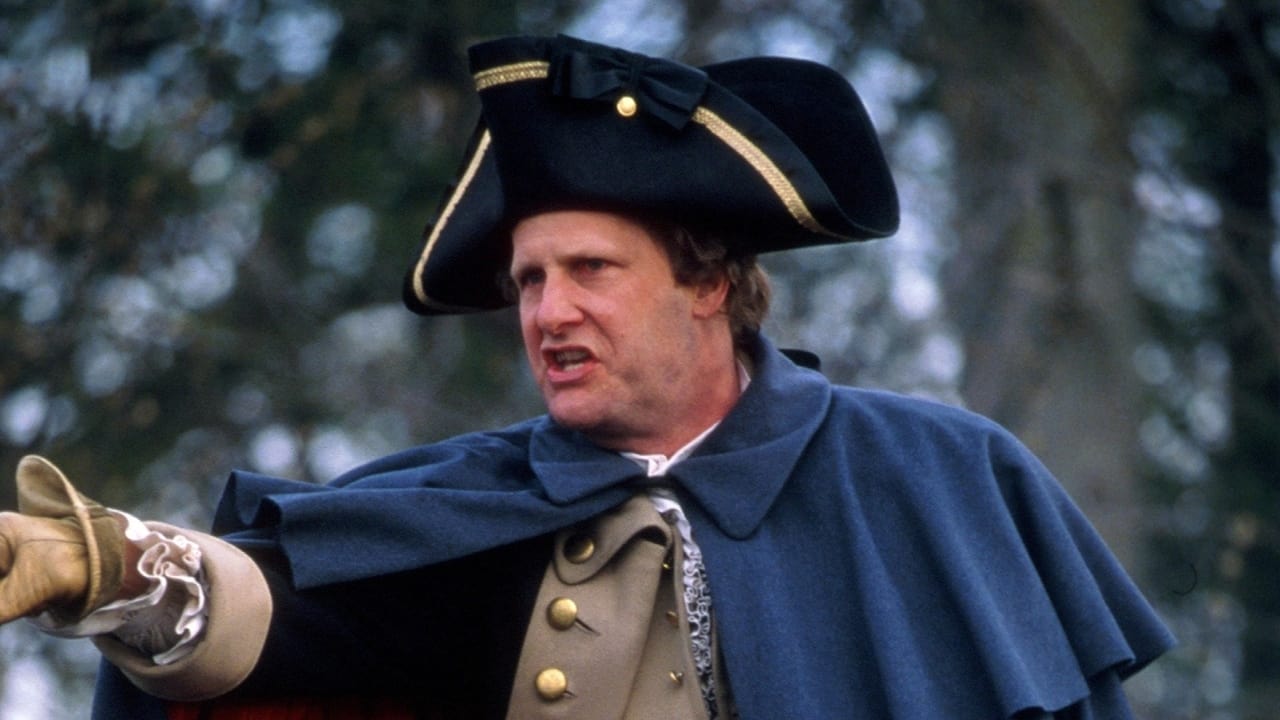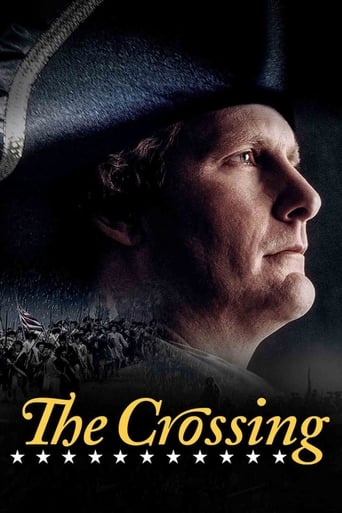

Although fairly well directed and performed, with an engaging story that makes you want to keep watching - The end result is a poisonous mischaracterization of the American revolution with a few major lies inserted in an otherwise sound whole. 1. They try to claim in one of the beginning scenes that Americans are fighting for "liberty and equality". No, that's the French revolution (Liberty, equality, fraternity). The American slogan would have been "life, liberty, and property" (Property was changed to the "pursuit of happiness" in the declaration of independence by Benjamin Franklin, who did not want the south to later use this phrase as an excuse to think the revolution was endorsing their right to keep slaves). The foundation of our country was the right to pursue your God given life and keep what God has given you. When you introduce the idea that we were fighting for equality that opens up the potential for major distortion of the revolution; because although "equality" sounds nice, the meaning of it in the context of the French revolution often means "equality of outcomes", or to put it another way: wealth redistribution from the rich to the poor. The antithesis of American revolutionary values. 2. Elsewhere, the Hessians are depicted as mercenaries who fight for money (historical point of fact, the money all went to the ruler of the Hessian state. The soldiers were obligated to fight wherever they were commanded to and saw no personal share of the money) - which by itself would not be a big deal, if not for the fact that this is used by one of the characters to point out to Washington that the American soldiers are no better than the Hessians because they are really just fighting over the money related to taxation. Worse still, Washington is portrayed to reluctantly admit they are right. None of this is true. Although a commonly repeatedly lie that the revolutionary's primary cause was merely "taxation with representation", the truth is that it was only one minor issue amongst many more serious issues. Injustice in the judicial system, Britain abusing it's powers and taking away the representative rights of the colonies, were far more foundational problems. Taxation without representation was merely a symptom of deeper issues that involves Britain abusing the colonists, denying them various fundamental rights and due process, and moving to give them no say in their own governance. These are things the colonists had historically enjoyed, but which were coming under increasing attack as the Britain tried to assert more direct control over the colonies. Something people don't know is that taxation without representation was only the 17th problem listed in the Declaration of Independence, out of 27 issues, and was only a minor mention compared with the numerous mentions of other abuses.3. George Washington is depicted as someone with flexible morality (portraying him as someone who is committing some kind of great offense against a business owner by using his boats, when historically he wrote a letter to the governor of the state requesting all boats be put on a particular side of the river, with no suggestion that people thought this was some undue burden on their livelyhood in the dead of winter when the river would be frozen solid in a few days anyway). Moreso it depicts Washington as someone who would freely curse and even insult his generals in front of the men to make fun of them. None of that is true. In fact, Washington would discipline soldiers who were caught cursing. http://www.wallbuilders.com/libissuesarticles.asp?id=24548 Washington is known historically to be a man of extraordinary good character, humility, and good will towards others. His saintly reputation of respect and admiration throughout our country's history is well deserved considering that his devote commitment to Christianity was the only thing that allowed him to hold power, govern justly, and then leave after eight years of his own choosing without having enriched himself in the process. France showed us, with Bonaparte, what happens when a man of lesser character gets that kind of power; crowning himself emperor and spending most of his reign drafting up the French population to fight wars. For the most part there are many positive aspects of Washington's character that comes out in Daniel's portrayal of him, which I appreciate. Unfortunately, like the film as a whole, this typifies what we see where there is a lot of good stuff going on with the film that is spoiled by the insertion of poisonous historical lies which would leave the viewer with a deeply flawed perspective of the American revolution. These are not just minor historical foibles or creative license that can be overlooked. The first two issues especially undermine the core purpose and nature of the revolution. Given that, I must give it 1 star, despite it's entertainment value, because it has no redeeming value as historical storytelling. I would not recommend anyone watch this to learn more about what happened, without knowing about these key flaws beforehand. Nor would I use it as a teaching aid, as historical movies sometimes are, because of these fatal errors in the film. Like rat poison, the poison of historical lies may not take up much of the screen time compared with the totality of the film, but what little is there is lethal to enabling someone to come away from the film with a truthful understanding of our history. The nature of these lies would undermine's someone trust in the founding principles of our country if believed; if they thought it was nothing but a fight over taxes and our most revered founder were not even that committed to living by the principles he was suppose to be fighting for. I can see no other reason for these lies to be inserted other than for the purpose of undermining people's respect and appreciation for the country they have inherited.
... View More1776, less than six months after the Declaration of Independence, the Continental Army is under the command of General George Washington (Jeff Daniels) , and his officers as Gen. Hugh Mercer (Roger Rees) and Col. John Glover (Sebastian Roché) . Then the army flees into Pennsylvania by seizing the only boats available .The army must cross the Delaware , the frontier between Pennsylvania and New Jersey , to a seemingly relentless battle at a small location , Trenton , being held only by a limited force of Hessian mercenaries.This epic Telefilm has emotion , thrills, spectacular battles and based on historical deeds . Interesting plot about the dramatization of George Washington's perilous gamble of crossing the Delaware River and attacking the British forces at Trenton , based on a novel written by Howard Fast (Spartacus) who also written the teleplay .Good performance by main starring , Jeff Daniels , and memorable support cast plenty of known TV faces and mostly Canadian actors , such as Sebastian Roché , Roger Rees , Karl Pruner and Nigel Bennet . Evocative and glamorous cinematography by Rene Oshasi . Sensitive and appropriate musical score by Gary Chang . The motion picture was compellingly directed by Robert Harmon , a prestigious filmmaker of series and TV episodes and some movies as the successful The hitcher.The picture was well based on historical deeds , adding more details , these are the following : In August 1776, British General William Howe launched a massive naval and land campaign designed to seize New York. The Continental Army under Washington engaged the enemy for the first time as an army of the newly independent United States at the Battle of Long Island, the largest battle of the entire war. The Americans were heavily outnumbered, many men deserted, and Washington was badly beaten. Subsequently, Washington was forced to retreat across the East River at night. Washington retreated north from the city to avoid encirclement, enabling Howe to take the offensive and capture Fort Washington on November 16 with high Continental casualties. Washington then retreated across New Jersey; the future of the Continental Army was in doubt due to expiring enlistments and the string of losses.On the night of December 25, 1776, Washington staged a comeback with a surprise attack on a Hessian outpost in western New Jersey. He led his army across the Delaware River to capture nearly 1,000 Hessians in Trenton, New Jersey. The Battle of Trenton was over in less than an hour. American losses were 2 killed and 5 wounded. One of the wounded was Lieutenant James Monroe, the future Fifth President of the United States. Lieutenant Monroe was also reputed to be the man standing next to George Washington and holding the American flag in Emanuel Leutze's famous painting, "Washington Crossing the Delaware". Also, it was widely believed that the Hessians were intoxicated as a result of their Christmas celebrations. That has been proved by historians to not be the case . Washington followed up his victory at Trenton with another over British regulars at Princeton in early January. The British retreated back to New York City and its environs, which they held until the peace treaty of 1783. Washington's victories wrecked the British carrot-and-stick strategy of showing overwhelming force then offering generous terms. The Americans would not negotiate for anything short of independence
... View MoreI saw The Crossing about 4 months ago in History class, since we were studying about the Revolutionary War and about George Washington crossing the Delaware river. I was surprised of how accurate it was. I mean almost everything in it was the truth. The performances were really good and Jeff Daniels played a great role as George Washington. Overall, a good little film or TV show that was very entertaining. If you also like violence in films, you will be sure to like this one because there are enough violence to look at but I guess if you don't really like violence, then I don't think this is a film to see. I recommend it to a lot of people.Hedeen's Outlook: 8/10 *** B
... View MoreI won't vouch for the absolute historical accuracy of what gets portrayed here, but as one take on George Washington's attack on Trenton (the title refers to the crossing of the Delaware River for the attack) it works. Certainly not everything portrayed happened (how can one know exactly what went on over two hundred years ago) but the details of the crossing and the battle were accurate enough from what I know of U.S. history, and the movie itself was dramatic and held my attention from start to finish.Kudos to Jeff Daniels, who offered a completely believable performance as Washington. Daniels is proving to be quite adept at these kinds of historical movies ("Gettysburg" leaps to mind, and of course now "Gods and Generals.") A good, if lesser known, supporting cast also made valuable contributions to this picture.In short, I wouldn't use this as a source material for an essay on the Battle of Trenton, but I would certainly recommend it as a very good movie.8/10
... View More